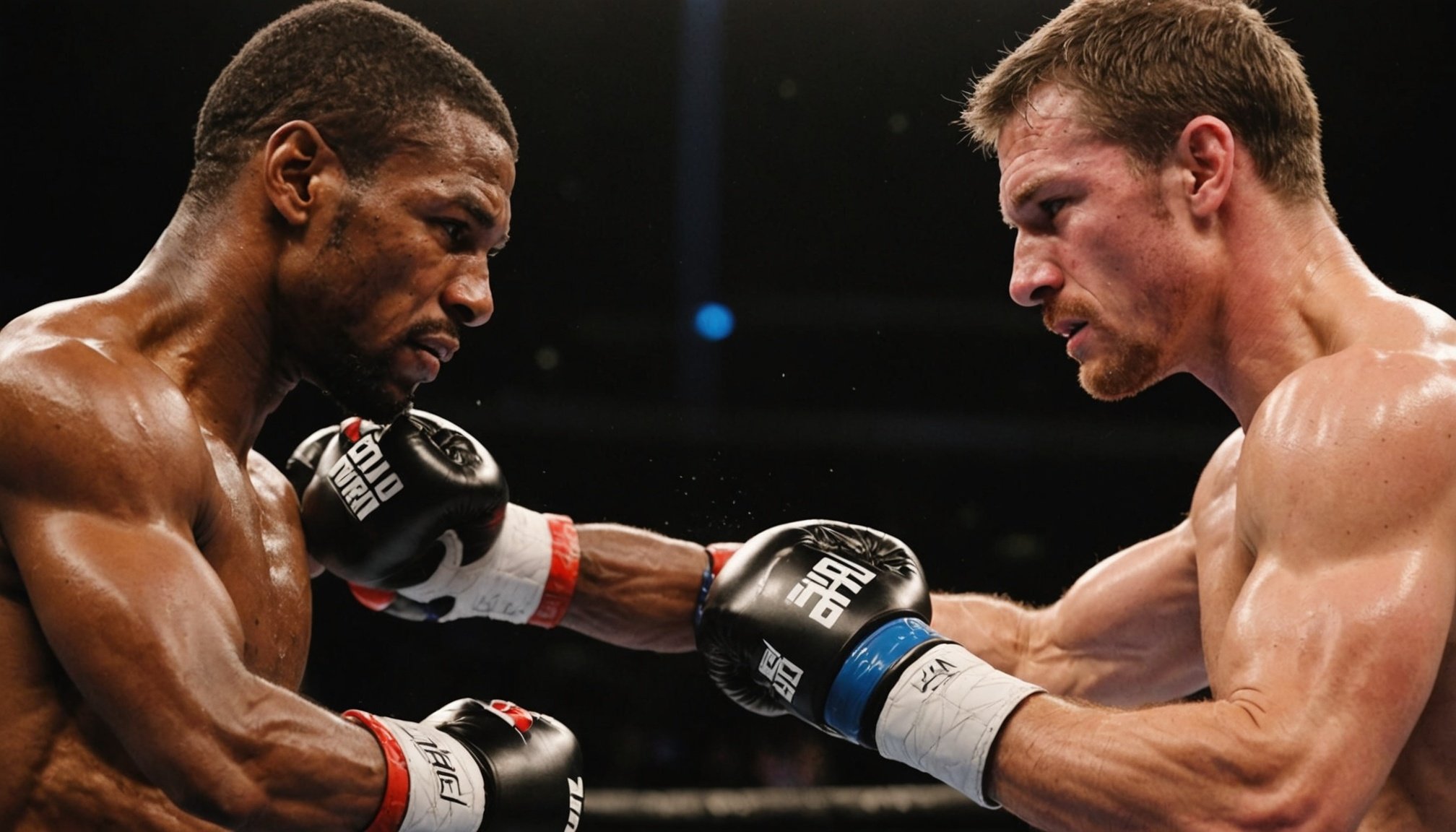In the world of sports, particularly in high-stakes environments like combat and boxing, the mental aspect of performance often plays a pivotal role in determining success. While physical training is essential, the ability to manage anxiety, stay focused, and maintain toughness under pressure can differentiate between victory and defeat. This article delves into how a fighter’s mindset can significantly influence their performance, especially when the stakes are high. We will explore various strategies that can help athletes sharpen their mental edge, enhance their focus, and ultimately improve their competition outcomes.
The Importance of Mental Toughness in Combat Sports
Mental toughness is a critical component for athletes in any sport, but in combat sports, it takes on an even greater significance. Fighters must constantly face not only their opponents but also the pressure of competition and the weight of expectations. The ability to remain calm, collected, and focused can mean the difference between pulling off a technical knockout or succumbing to defeat.
Also read : What are the most common mistakes fighters make during their training sessions?
In a fight, mental strength manifests in several ways. Firstly, it enables fighters to cope with the physical demands of their discipline. Maintaining toughness allows an athlete to push through pain and fatigue, which are inevitable in intense training and competition scenarios. This persistence is often what separates champions from their rivals.
Moreover, mental toughness helps fighters manage anxiety. The fear of losing, disappointing fans or coaches, or not meeting personal expectations can create immense pressure. Those who cultivate a strong mental mindset can transform this anxiety into positive energy, fueling their performance rather than hindering it. Techniques such as visualization, where a fighter imagines themselves succeeding in high-pressure situations, have proven effective in enhancing performance and reducing pre-fight jitters.
In the same genre : What should a fighter’s post-fight recovery routine include for optimal healing?
Additionally, the ability to maintain focus during a fight is essential. A fighter with a clear, focused mind can read their opponent’s moves better, strategize on the fly, and respond appropriately to changing circumstances in the ring. This responsiveness can often lead to crucial opportunities to seize the advantage during a match.
In conclusion, mental toughness is not just a supplementary attribute for fighters; it is foundational to their ability to thrive under competitive pressure. Fostering this toughness will not only prepare them for the rigors of the sport but also enhance their overall performance and resilience.
Techniques for Enhancing Focus and Reducing Anxiety
To maximize performance, fighters must actively work on enhancing their focus and reducing anxiety. Various techniques have been developed to aid in this process, and athletes should consider implementing them in their training regimens.
One effective technique is mindfulness meditation. This practice encourages athletes to focus on the present moment, reducing distractions and anxiety associated with past performances or future expectations. By training their mind to stay present, fighters can improve their concentration during training and competition. Research has shown that athletes who regularly practice mindfulness report lower levels of anxiety and higher levels of focus.
Another technique worth considering is breathing exercises. Controlled breathing can be a powerful tool for fighters facing overwhelming pressure. Simple techniques, such as the 4-7-8 method—where one inhales for four seconds, holds for seven seconds, and exhales for eight seconds—can help regulate heart rate and calm the mind. Implementing these exercises during training can condition fighters to utilize them effectively during high-stress moments in the ring.
Visualization is another potent mental training strategy. Athletes can mentally rehearse successful performances, visualizing themselves executing techniques flawlessly and overcoming obstacles. This not only enhances focus but also builds confidence. By repeatedly visualizing success, fighters can create a mental blueprint that aids them during actual competition.
Lastly, building a strong support system is crucial. Coaches, teammates, and even sports psychologists can provide valuable perspectives and emotional support. Open communication about feelings of anxiety and pressure can alleviate some of the burdens fighters carry, allowing them to focus more on their performance.
In summary, enhancing focus and reducing anxiety is a multifaceted approach. Incorporating mindfulness, breathing exercises, visualization, and a supportive environment can significantly impact a fighter’s mental preparedness for competition.
Building Resilience and Overcoming Setbacks
Resilience is a key factor in a fighter’s performance. The ability to bounce back from setbacks—be it a loss in the ring or an injury off it—can define an athlete’s career. Resilience is not just about physical recovery; it is also about mental recovery. Developing this quality requires a combination of mindset shifts and practical strategies.
One of the first steps to building resilience is the acceptance of failure as a part of the journey. Fighters who view setbacks as opportunities for growth rather than as definitive failures tend to develop a stronger mental framework. They learn to analyze what went wrong, make necessary adjustments, and move forward rather than dwell in negativity. This proactive approach fosters a growth mindset, which is essential for long-term success in any sport.
Additionally, fighters should focus on goal-setting. Establishing both short-term and long-term goals provides a roadmap for progress. These goals should be realistic, measurable, and actionable. Having clear objectives keeps athletes motivated and focused, especially during challenging times. It helps them see beyond immediate setbacks, maintaining perspective on their broader aspirations.
Moreover, participating in supportive communities—whether through training camps, local clubs, or online platforms—can fortify a fighter’s resilience. Sharing experiences with fellow athletes can provide encouragement and different viewpoints on overcoming challenges. This communal support can be invaluable during times of struggle.
Furthermore, mental conditioning through techniques like positive self-talk can reinforce a fighter’s belief in their abilities. Affirmations and positive reinforcement can help combat negative thoughts that arise after setbacks, enabling fighters to maintain confidence in their skills and mindset.
To conclude, building resilience is an essential aspect of a fighter’s journey. By embracing failure, setting goals, engaging with supportive communities, and practicing positive self-talk, athletes can develop the mental fortitude required to succeed in the face of adversity.
The Role of Sports Psychology in Performance Enhancement
Sports psychology plays a significant role in enhancing an athlete’s mental performance. This field of psychology focuses on the mental factors that can influence an athlete’s training, performance, and overall well-being. Fighters, in particular, can greatly benefit from the insights and techniques provided by sports psychology.
One of the primary areas where sports psychology can help is in developing effective coping strategies for anxiety and pressure. Sports psychologists work with athletes to identify triggers that cause stress or nervousness and develop individualized strategies to cope with these feelings. This tailored approach helps fighters learn how to manage their emotions and maintain composure during high-stakes competition.
Another benefit of sports psychology is the training of mental skills that enhance focus and concentration. Techniques like imagery, self-talk, and goal-setting are fundamental to creating the optimal mental state before and during a fight. A well-trained mind is just as important as a well-trained body, and sports psychologists provide the support necessary to develop these skills.
Additionally, sports psychologists can help fighters establish routines that promote mental readiness. Pre-fight rituals, such as warm-up exercises, visualization, or listening to music, can help create a familiar mental space that calms the mind and prepares the body for action. Routines also serve to reduce anxiety by providing a sense of control before entering a fight.
Furthermore, engaging with a sports psychologist can assist fighters in managing the mental aftermath of competition. Losses can weigh heavily on an athlete’s psyche, and professional guidance can help them process these experiences constructively. Learning how to analyze performance without harsh self-criticism is essential for maintaining confidence and continuing to improve.
In conclusion, sports psychology offers fighters a wealth of resources to enhance their mental performance. By developing coping strategies, mental skills, routines, and processing losses effectively, athletes can significantly boost their competitive edge.
In the competitive realm of sports, particularly in combat disciplines like boxing and martial arts, the mindset of a fighter is crucial to their overall performance. Emotional resilience, focus, and mental toughness are not merely beneficial but necessary for success in high-pressure situations. By employing strategies to enhance mental resilience, reduce anxiety, and cultivate a strong mental game through sports psychology, fighters can improve their chances of excelling in the ring.
The journey to becoming a successful athlete is as much about the mental game as it is about physical prowess. As fighters continue to train and compete, understanding and developing their psychological skills will contribute to their overall health and performance. In the unforgiving world of competition, a fighter’s ability to navigate the mental landscape often determines their path to victory.











